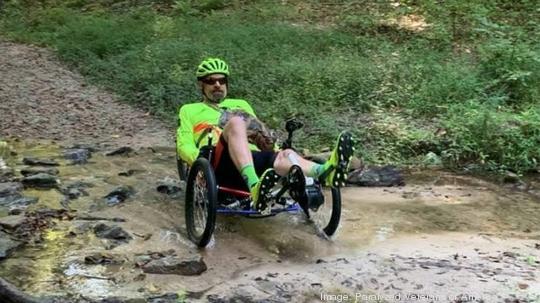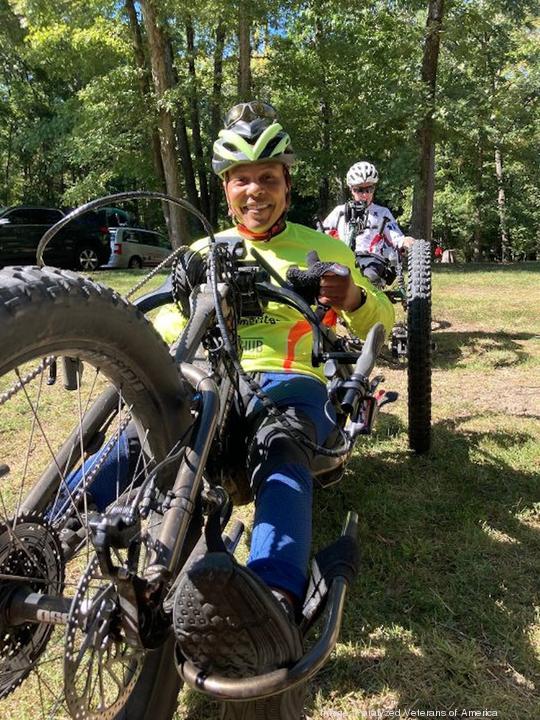
Earlier this month, just south of Richmond at Pocahontas State Park, innovation gave more than 50 members of Paralyzed Veterans of America the chance to cycle through a wooded trail.
The PVA is a nonprofit organization that supports paralyzed veterans through sporting events, financial support and mentoring. Its mission is to "be a supportive community for capable heroes."
“It’s life-changing,” said John Arbino, PVA’s adaptive sports program manager. “It gives us a chance to be normal again and get out and do what we used to do. A lot of us were cyclists before whatever put us in the wheelchair.”
Arbino said adaptive cycles are bikes modified with a design to allow people with mobility challenges the ability to ride. Many of the adaptive cycles are paid for through donations from sponsors, while others are loaned to veterans by the Veterans Administration as part of physical therapy. Others simply purchase their own.
“(Adaptive cycles) provide an avenue to get us back into nature again and be the person we are used to being,” he said.
Paul Kilgore, an Army infantryman for more than 20 years, said injuries during his time in the military, combined with cancer, prevented him from riding a traditional bike.
“I can honestly say finding adaptive cycling probably saved my life,” he said. “It was like it turned on a switch and made things better.”
The adaptive cycles come in different styles. Handcycles, for example, allow veterans with lower body limitations to pedal with their arms. Another design, the recumbent trike, is more leg-powered but allows the cyclist to be in a comfortable reclining position, while three wheels provide more stability.

The innovative designs give the veterans a new-found freedom, Kilgore said.
“Higher ground clearance, suspension and light weight are all critical keys to a good off-road handcycle or recumbent trike,” he said.
Additionally, Kilgore said many of the cycles are equipped with electric assisted motors, which are helpful on hills. Depending on the type of adaptive cycle, they can cost anywhere from $3,000 to $10,000 dollars.
Ivan Schwartz, executive director of Paralyzed Veterans of America, Mid-Atlantic Chapter, said veterans come from all over the country to participate.
“This ability to participate wouldn’t be available for them without the incredible design and technology associated with these machines,” he said.
Arbino said the PVA plans to hold the cycling event twice a year with the next ride at Pocahontas State Park in April.
“Most mountain bike trails are built for an upright bicycle, so the trails are a lot narrower, but Pocahontas has made the effort to widen a lot of their trails so we can fit the hand cycles [and other adaptive bikes] on them,” he said.
James Madison, a veteran from San Antonio, agreed, explaining how the innovative cycles have changed his life.
“It is truly amazing to be able to get out and explore the trail system. It gives a new freedom to life I had not had since being injured. It gives me an opportunity to get out, be active, and socialize with people,” he said. “I don't believe I'd still be alive if I didn't have (the adaptive bike and cycling opportunity).”